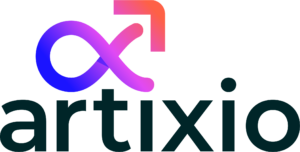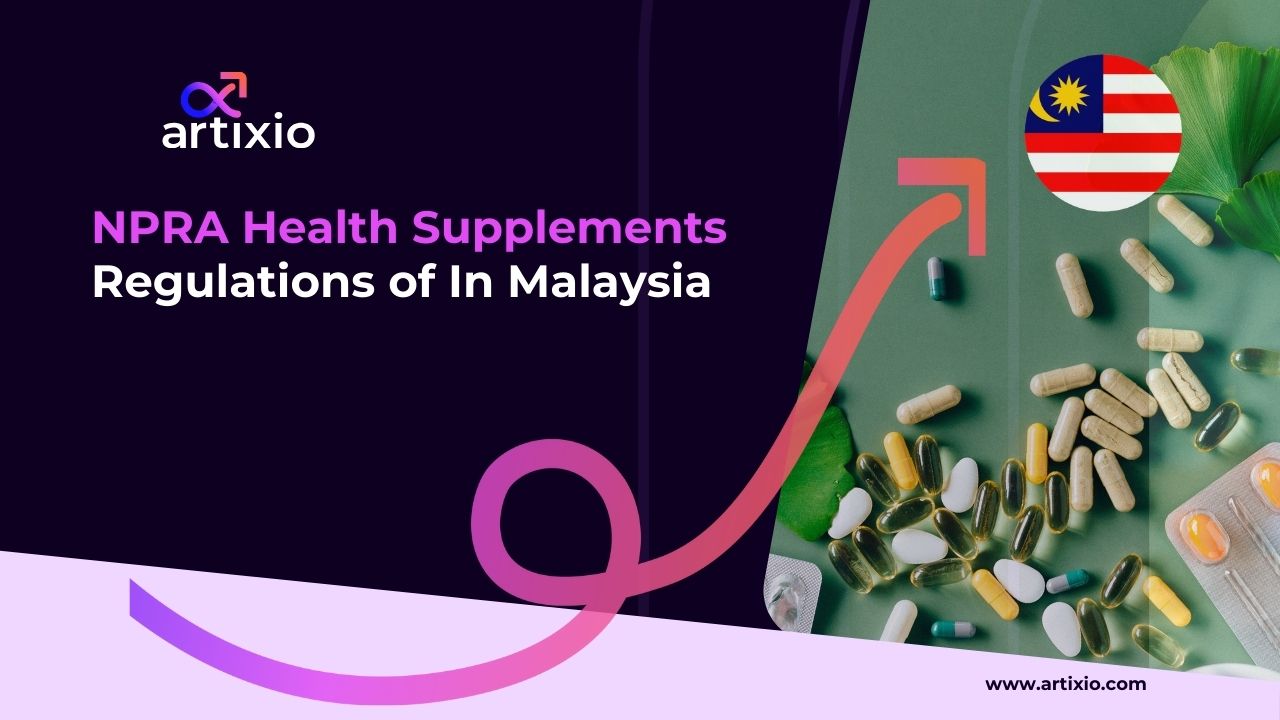In Malaysia, it’s not unusual to find health supplements being sold online without proper approval. The NPRA has even flagged cases where products made bold “100% safe” claims but turned out to be unregistered . To avoid this risk, every health supplement must first go through the NPRA registration process.
In the next section, we’ll look at what counts as a supplement in Malaysia, NPRA Regulations for Health Supplements, the steps for registration, and the rules on what you can claim.
Health Supplements in Malaysia
A health supplement is any product used to supplement a diet and to maintain, enhance, and improve the health function of the human body. It is presented in small unit dosage forms (to be administered) such as capsules, tablets, powder, liquids, and shall not include any sterile preparations (i.e., injectables, eyedrops). Health supplements are taken orally, and products intended to be taken by any other route are not considered health supplements.
Health supplements or nutraceuticals may contain one or more of the following:
- Vitamins, minerals, amino acids, fatty acids, enzymes, probiotics, and other bioactive substances
- Substances derived from natural sources, including animal, mineral, and botanical materials in the forms of extracts, isolates, concentrates, and metabolites
- Synthetic sources of ingredients mentioned above, but only where safety has been proven
Vitamin and mineral supplements for pregnant and lactating women are also considered health supplements. Products that are meant to be eaten as a meal, injectables and sterile preparations, and products that contain cells, tissues, organs, or any substance derived from the human body are not considered health supplements and are subject to different regulations. Products that contain substances listed in the Schedule of Poison Act are also not regulated as health supplements. Preparations that are made by a healthcare practitioner to be given directly to their patients as part of treatment are not considered health supplements.
Now as we have seen what a health supplement is, let’s look at an image of what must not be a health supplement
Health Supplements: Adult Maximum Daily Levels of Vitamins and Minerals Allowed
As per stated in Appendix 4 of the Drug Registration guidance Document by NPRA, the following are the upper daily levels to be consumed by adults:
| Vitamins & Minerals | Daily Level (Upper Limit) |
| Vitamin A | 5000 IU |
| Vitamin D | 1000 IU |
| Vitamin E | 800 IU |
| Vitamin K | 0.12 mg |
| Vitamin B1 & B6 | 100 mg |
| Vitamin B2 | 40 mg |
| Vitamin B5 | 200 mg |
| Vitamin B12 | 0.6 mg |
| Vitamin C | 1000 mg |
| Folic Acid, Biotin | 0.9 mg |
| Nicotinic Acid, Zinc | 15 mg |
| Niacinamide | 450 mg |
| Boron | 6.4 mg |
| Calcium | 1200 mg |
| Chromium | 0.5 mg |
| Copper | 2 mg |
| Iodine | 0.3 mg |
| Magnesium | 350 mg |
| Manganese | 3.5 mg |
| Selenium | 0.2 mg |
| Molybdenum | 0.36 mg |
| Phosphorous | 800 mg |
Health Supplement or Nutraceuticals Claims in Malaysia
The NPRA also regulates the health claims that can be made for health supplements. All health claims must be supported by scientific evidence. The NPRA has a list of approved health claims that can be made for certain ingredients and health supplements.
All health supplement claims must be accurate and truthful, and should not mislead consumers. Claims should be supported by scientific evidence, and should only promote health maintenance and promotion, not the treatment, cure, or prevention of disease. The health supplement claims should:
- Be consistent with the definition of a health supplement, which is a product that is intended to supplement the diet and maintain, enhance, or improve the health function of the human body.
- Enable consumers to make informed choices about which products to purchase.
- Support the safe, beneficial, and appropriate use of the product.
- Be supported by scientific evidence that is proportional to the type of claim being made.
- Be for health maintenance and promotion purposes only,and should not imply that the product can treat, cure, or prevent disease.
Health supplement claims can be divided into three categories:
- General or Nutritional Claims (Low Risk)
- Functional Claims (Medium Risk)
- Disease Risk Reduction Claims (High Risk)
Health Supplements / Nutraceuticals with General or Nutritional Claims –
These health supplements are primarily intended to maintain general health and provide benefits that go beyond what can be achieved through normal dietary intake. These types of supplements can support healthy growth and development, nourish the body, relieve general tiredness and weakness, and help to maintain good health. They can also include claims for energy, vitality, and strengthening the body.
To make these claims, products must have a minimum of 15% Nutrient Reference Value (NRV) per daily dose of vitamin and/or mineral. If the product contains less than 15% NRV, the claims must be supported by scientific evidence. The other ingredients in the supplement must also be supported by scientific evidence.
Health Supplements / Nutraceuticals with Functional Claims –
Health supplements that are used to maintain or improve the structure or function of the body, but do not make disease-related claims, are classified as functional supplements. These claims must be based on the effects of a single ingredient.
Health Supplements / Nutraceuticals with Claims to reduce the disease risk –
Supplements that claim to reduce the risk of disease are considered high-risk supplements. These claims must be supported by strong scientific evidence.
Evidence for the health claims
The level of scientific evidence required to support each type of claim varies. General or nutritional claims require the least evidence, while disease risk reduction claims require the most.
Manufacturers of health supplements can use evidence from books, pharmacopoeias, scientific reviews, and other sources to support their claims in their product dossier. However, all references must be current as of the date of submission. The National Pharmaceutical Regulatory Agency (NPRA) also publishes a list of acceptable reference texts, organizations, and regulatory authorities.
The NPRA accepts usage recommendations from the following reference authorities:
- Australia’s Therapeutics Goods Administration (TGA)
- Chinese Health Authority on Chinese medicinal herbs
- European Commission
- Health Canada
- US Food and Drug Administration (FDA)
Mandatory requirement by NPRA For Health Supplements Registration:
- Product registration
To register a health supplement with the NPRA, manufacturers must submit a product dossier that includes the following information:
- Product information, such as name, composition, dosage form, and intended use
- Manufacturing information, such as quality control procedures and good manufacturing practices (GMP) certification
- Safety and efficacy data, including clinical trials and preclinical studies
- Labeling and packaging information
The health supplement registration process in Malaysia can be divided into four steps:
Step 1: Preparation
Before submitting a registration application, manufacturers must first prepare their product by classifying it, setting up a token for secure online submission, choosing a payment method, determining their patent and data exclusivity status, and making sure they have all the required documents.
Step 2: Submission
Once the product is ready, manufacturers can submit their application online by uploading all required documents and completing all four parts of the application (I, II, III, and IV). In the QUEST System, for different product categories online application forms are available. It is important to fill the correct application by selecting the appropriate section from the display panel.
Step 3: Regulatory outcome
The National Pharmaceutical Regulatory Agency (NPRA) will then review the application and make a decision about whether to approve or reject the product for registration. This decision is solely based on the outcome of the evaluation of the samples and documents submitted.
The decision of the authority will be sent to the product registration holder via an official letter/e-mail. The NPRA may also request additional information from the manufacturer during the review process. Authority has the power to cancel, reject or suspend the registration of product at any time if the registration requirements are not satisfied or if there is any deficiency in the quality, safety and efficacy of the product.
Step 4: Post-registration process
Once the product is registered, manufacturers must maintain their registration, comply with all post-marketing requirements, and may withdraw or amend their registration as needed. 5 years is the validity for the registration status of the product or the period as mentioned in the database of the authority.
In summary, the registration process in Malaysia is a comprehensive four-step process that ensures the safety and efficacy of all registered products.
The NPRA’s regulation of health supplements is designed to protect consumers from unsafe and ineffective products. By requiring manufacturers to register their products and provide evidence of safety and efficacy, the NPRA helps to ensure that only high-quality health supplements are available to Malaysian consumers.
If you are a manufacturer or importer of health supplements and need assistance with product registration or enterprise licensing in Malaysia, contact Artixio for end-to-end regulatory support. We have a team of experienced regulatory experts who can help you to navigate the complex NPRA registration process and ensure that your products are in compliance with all applicable regulations.
Artixio looks forward to working with you to bring your health supplements to the Malaysian market safely and efficiently. Contact us at info@artixio.com.
FAQ’s
Q. What is a health supplement claim?
A health supplement claim refers to the beneficial effects of consuming a health supplement in order to promote good health and well-being, both physical and mental, by providing nutrition, enhancing body function/structure, relieving physiological discomfort and/or decreasing the risk for health related conditions/diseases.
Q. What is the QUEST 3+ System?
It is an online submission platform launched by the NPRA which enables Product License Holder, Manufacturer, Importer, Re-packer, Reseller as well as other related users to conduct secured online transactions regarding product registration, variation, licensing, market sampling, renewal and other transactions.
Q. What is the applicant responsible for after the post registration process?
All the conditions and commitments imposed on product registration must be fulfilled by the applicant. The is responsible for maintaining the safety, quality and efficacy of the product throughout the validity period of registration.
Q. What is the fee for the re-registration of health supplements?
For re-registration of health supplements, the fee per product is RM 1000. The same fees apply to other pharmaceutical products as well.



